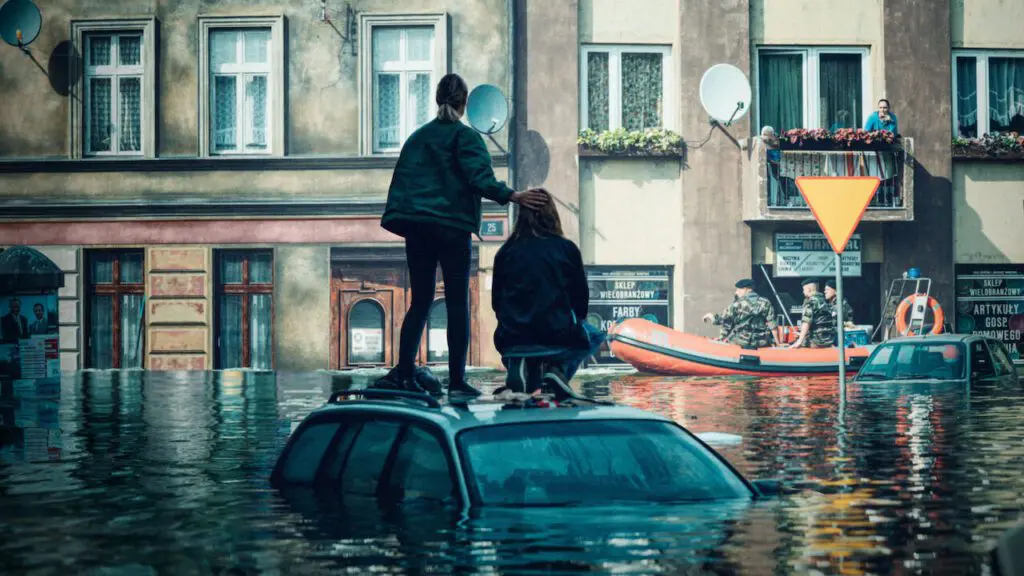Polish Netflix original High Water takes the fairly novel approach of recreating a real-life natural disaster – the Millennium Flood, a terrible deluge that sank most of Wroclaw, Poland, as well as parts of Germany and the Czech Republic – with fictional characters.
In that sense, the show gets to have its cake and eat it, being fairly true to the real sequence of events and the bad decision-making that occurred before, during, and after the flood, but also being highly dramatized and binge-able, while delivering scathing condemnation by the bucketload without risking a negative – and potentially litigious – response.
In the early going, the show’s invented protagonist, hydrologist Jasmina Tremer, does her darndest to prove the flood is imminent while everyone around her tries to deny it. Here, the show is engaging but a little – this in a bit of a whisper – dry, though things get more interesting as the show’s depiction of history begins to dovetail with a made-up personal relationship between Tremer and provincial executive Jakub Marczak.
As is always the case, mismanagement on multiple levels led to the Millennium Flood, and adequate justice for this was never quite meted out, despite some of those involved having to testify in official hearings. But there isn’t that fist-pump moment of catharsis to be found here, at least not regarding the non-fiction details. The flood can’t be averted despite the overwhelming evidence of its imminent arrival, it costs many lives and many millions of dollars, and nobody is really made to answer for any of it in any meaningful sense.
But this is why fictionalizing the major players around High Water‘s true story was such a good idea, since the history between Tremer and Marczak, which initially unfurls as a kind of mystery, is much more satisfying in its narrative rhythms and builds to a nice payoff. As is revealed gradually, these two actually have a romantic history, and what’s more is that Jakub’s daughter, Klara, is actually Jasmina’s daughter, left for him to raise alone because Jasmina was an addict.
Despite all the time that has elapsed, and all the bitterness and regret that continues to simmer around the dynamic, the flood actually brings Jasmina and Klara together. The kid is smart enough to join the dots, and with Jasmina in recovery and therefore much better positioned to develop a relationship with her daughter, High Water is able to deliver an emotional payoff that the climax of the real events wouldn’t have provided.




